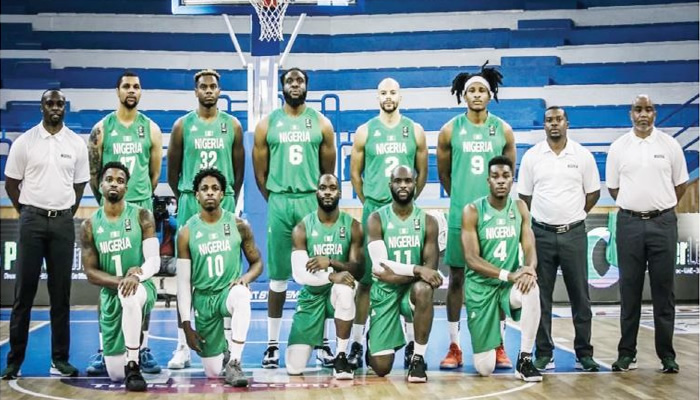The Nigerian national basketball team, D’Tigers, faces a challenging road to the 2027 FIBA World Cup after being drawn into Group C alongside Rwanda, Guinea, and Tunisia for the first phase of the African qualifiers. This draw, held in Doha, Qatar, the future host of the World Cup, places Nigeria in a competitive group where they will need to secure a top-three finish to advance to the next round. The stakes are high, as only five African teams will ultimately qualify for the global tournament. This initial phase, beginning in November 2025, will set the stage for a grueling qualification process, with every game carrying significant weight.
Group C presents a mix of familiar and emerging threats for D’Tigers. Tunisia, a consistent powerhouse in African basketball, poses the most significant challenge, boasting a history of success in continental competitions and World Cup appearances. Rwanda and Guinea, while perhaps less experienced on the international stage, are nonetheless capable of upsetting the established order. Nigeria, with its rich basketball tradition and ambition to compete at the highest level, will need to approach each game with focus and determination to navigate this challenging group. Securing a top-three finish is crucial for D’Tigers to keep their World Cup hopes alive.
The broader African qualification landscape features a diverse range of teams vying for the limited World Cup spots. Group A comprises Cameroon, South Sudan, Cape Verde, and Libya, while Group B includes Senegal, DR Congo, Madagascar, and the Ivory Coast. Group D features Mali, Angola, Uganda, and Egypt, creating a diverse and competitive field across the continent. The distribution of talent across these groups underscores the rising level of competition in African basketball, making the qualification process even more demanding for all participating nations. The first phase, spread across five windows starting in November 2025, will witness intense battles as teams fight for their survival in the qualification race.
The qualification process for the 2027 FIBA World Cup features a two-round structure designed to ensure the most competitive teams emerge from each region. After the initial group stage, where the top three teams from each group advance, a second round sees the qualified teams regrouped into two new groups. Crucially, all results from the first round are carried forward, emphasizing the importance of every single game. This format adds a layer of strategic complexity to the qualification process, as early victories can prove invaluable in the later stages. Teams cannot afford to drop points early on, as these could come back to haunt them when the final standings are calculated.
The second round intensifies the pressure, with each nation playing six games against opponents they didn’t face in the first phase. This ensures a balanced schedule and allows for a more comprehensive assessment of each team’s capabilities. The competition will be fierce, as only the top two teams from each second-round group, along with the best third-placed team, will secure their tickets to the 2027 FIBA World Cup. This format creates a high-stakes environment where every game carries significant implications for a team’s World Cup aspirations.
The 2027 FIBA World Cup promises to be a historic event, marking the first time the tournament will be held in the Middle East and North Africa region. Hosting the entire tournament in the city of Doha, Qatar, also sets a precedent for FIBA, demonstrating a commitment to showcasing basketball in a dynamic and rapidly developing region. This concentrated format will create a unique atmosphere, enhancing the fan experience and providing a centralized hub for the global basketball community. The significance of this location choice extends beyond the sport itself, representing a broader cultural exchange and promoting basketball’s global reach.
With 32 teams vying for the coveted Naismith Trophy, the 2027 FIBA World Cup is poised to be the largest and most competitive edition yet. The tournament will showcase the best basketball talent from around the globe, offering a platform for national teams to demonstrate their prowess and compete for the ultimate prize. The single-city format and the historic location will undoubtedly contribute to the tournament’s unique character, creating a memorable experience for players, fans, and the entire basketball world. The 2027 FIBA World Cup is not just a sporting event; it’s a celebration of basketball’s global appeal and a testament to the growing influence of the sport in new and exciting territories.


